- Home
- Jerry B. Jenkins
Mark's Story Page 12
Mark's Story Read online
Page 12
Mark humored Peter by seeking news of the brethren spread abroad and their exploits in taking the gospel to the rest of the world. But then daily he begged for more and more stories from the time Peter had spent with Jesus.
“Is it true, as the others have often said, that Jesus seemed to speak in riddles?”
“Oh, certainly. Many times we had no idea what He meant. He often said that he who had ears would hear. In other words, someone listening with the ears of faith could understand. He loved to use figures of speech and see who was catching His intent.
“For instance, some of the disciples of John the Baptist—while he was in prison—were still observing the pharisaical two-day-a-week fast. We believed that the Law of Moses required fasting only on the Day of Atonement, but the Pharisees had added Monday and Thursday fasts as signs of piety. The Pharisees came to Jesus and said, ‘Why do the disciples of John fast, but Your disciples do not fast?’
“Jesus said, ‘Can the friends of the bridegroom fast while the bridegroom is with them? As long as they have the bridegroom with them they cannot fast. But the days will come when the bridegroom will be taken away from them, and then they will fast in those days. No one sews a piece of unshrunk cloth on an old garment; or else the new piece pulls away from the old, and the tear is made worse. And no one puts new wine into old wineskins; or else the new wine bursts the wineskins, the wine is spilled, and the wineskins are ruined. But new wine must be put into new wineskins.’”
Mark flinched and shook his head. “Did you have any idea what He was talking about?”
“Not then, of course. But now it is clear, is it not, that He was speaking of Himself? Needless to say, if we didn’t understand, the Pharisees understood even less. And they soon seemed to spend all their time trying to trip Him up on matters of the law. We were walking through grain fields on the Sabbath, plucking the heads of grain. The Pharisees asked Jesus, ‘Why do they do what is not lawful on the Sabbath?’
“He turned to them and said, ‘Have you never read what David did when he was in need and hungry, he and those with him: how he went into the house of God in the days of Abiathar the high priest, and ate the showbread, which is not lawful to eat except for the priests, and also gave some to those who were with him? The Sabbath was made for man, and not man for the Sabbath. Therefore the Son of Man is also Lord of the Sabbath.’”
“I cannot imagine how the Pharisees took this. They must have been infuriated!”
“Had they realized what He was saying, they would have been more so. On the same day we were in the synagogue and Jesus saw a man with a withered hand. The Pharisees were there and watching Him closely, as if daring Him to do something else unlawful on the Sabbath. He asked the man with the withered hand to step forward and said to the Pharisees, ‘Is it lawful on the Sabbath to do good or to do evil, to save life or to kill?’
“This time they knew enough to keep silent, which clearly made Jesus angry. He told the man to stretch out his hand, and as he did, the hand was restored, as whole as the other. The Pharisees immediately left, and Jesus told us they were plotting with the Herodians against Him, how they might destroy Him.”
“But this was still early in His ministry, correct? It was not yet His time.”
“Yes, they were unable to hurt Him then. We withdrew to the sea, and a great multitude from Galilee followed us from Judea and Jerusalem and Idumea and beyond the Jordan, and when they heard how many things He was doing, a great multitude from Tyre and Sidon also came to Him.
“He told us to keep a small boat ready for Him because of the multitude, lest they should crush Him. For He healed many, so that as many as had afflictions pressed about Him to touch Him. And the unclean spirits, whenever they saw Him, fell down before Him and cried out, saying, ‘You are the Son of God.’ But He sternly warned them that they should not make Him known.
“Now, Mark, you know that by this time more than seventy disciples followed Jesus. But one day He went up on the mountain and called to Him just the twelve He wanted close to Him, whom He would send out to preach and minister in His name. To us He gave the power to heal and to cast out demons. That included me, James and John—the sons of Zebedee—Andrew, Philip, Bartholomew, Matthew, Thomas, James the son of Alphaeus, Thaddaeus, Simon the Canaanite, and Judas Iscariot.
“The next time we ventured out, such a multitude came together that we could not so much as eat. And with Jesus’ detractors saying He was a madman, eventually word of all this reached His family in Nazareth, and they came, intending to rescue Him.
“The scribes who came from Jerusalem accused Him of being possessed by Beelzebub, and said, ‘By the ruler of the demons He casts out demons.’
“So He called them to Himself and said, ‘How can Satan cast out Satan? If a kingdom is divided against itself, that kingdom cannot stand. And if a house is divided against itself, that house cannot stand. And if Satan has risen up against himself, and is divided, he cannot stand, but has an end. No one can enter a strong man’s house and plunder his goods, unless he first binds the strong man. And then he will plunder his house.
“‘Assuredly, I say to you, all sins will be forgiven the sons of men, and whatever blasphemies they may utter; but he who blasphemes against the Holy Spirit never has forgiveness, but is subject to eternal condemnation.’ This He said because they accused Him of having an unclean spirit.”
“So what about His family, having come all the way from Nazareth?”
“Well, a multitude sitting around Him said, ‘Look, Your mother and Your brothers are outside seeking You.’
“He said, ‘Who is My mother, or My brothers?’ And He looked in a circle at those of us who sat closest about Him, and said, ‘Here are My mother and My brothers! For whoever does the will of God is My brother and My sister and mother.’”
“What did you make of that, Peter? Was it terribly insulting to His family?”
“I don’t believe they heard Him. He was telling us how important we were to Him. He was not demeaning His own. Often He spoke in parables to teach us while hiding His real meaning from others. For instance, again He began to teach by the sea. And a great multitude was gathered to Him, so that He got into a boat and sat in it on the sea; and the whole multitude was on the land facing the sea. Then He taught them many things by parables, saying, ‘Listen! Behold, a sower went out to sow. And it happened, as he sowed, that some seed fell by the wayside; and the birds of the air came and devoured it. Some fell on stony ground, where it did not have much earth; and immediately it sprang up because it had no depth of earth. But when the sun was up it was scorched, and because it had no root it withered away. And some seed fell among thorns; and the thorns grew up and choked it, and it yielded no crop. But other seed fell on good ground and yielded a crop that sprang up, increased and produced: some thirtyfold, some sixty, and some a hundred.’
“And He said to them, ‘He who has ears to hear, let him hear!’”
“Peter,” Mark said, “did you have ears to hear?”
“No, sadly I did not. When we were alone with Him, we asked Him about the parable. He told us, ‘To you it has been given to know the mystery of the kingdom of God; but to those who are outside, all things come in parables,
“‘so that “Seeing they may see and not perceive, and hearing they may hear and not understand; lest they should turn, and their sins be forgiven them.” ’
“He said, ‘Do you not understand this parable? How then will you understand all the parables? The sower sows the word. And these are the ones by the wayside where the word is sown. When they hear, Satan comes immediately and takes away the word that was sown in their hearts.
“‘These likewise are the ones sown on stony ground who, when they hear the word, immediately receive it with gladness; and they have no root in themselves, and so endure only for a time. Afterward, when tribulation or persecution arises for the word’s sake, immediately they stumble. Now these are the ones sown among thorns; they are the ones who hear
the word, and the cares of this world, the deceitfulness of riches, and the desires for other things entering in choke the word, and it becomes unfruitful. But these are the ones sown on good ground, those who hear the word, accept it, and bear fruit: some thirtyfold, some sixty, and some a hundred.”
“So He was explaining Himself to you.”
“Yes. And He also asked us, ‘Is a lamp brought to be put under a basket or under a bed? Is it not to be set on a lampstand? For there is nothing hidden which will not be revealed, nor has anything been kept secret but that it should come to light. If anyone has ears to hear, let him hear.
“‘Take heed what you hear. With the same measure you use, it will be measured to you; and to you who hear, more will be given. For whoever has, to him more will be given; but whoever does not have, even what he has will be taken away from him.
“‘The kingdom of God is as if a man should scatter seed on the ground, and should sleep by night and rise by day, and the seed should sprout and grow, he himself does not know how. For the earth yields crops by itself: first the blade, then the head, after that the full grain in the head. But when the grain ripens, immediately he puts in the sickle, because the harvest has come.’
“Jesus often tried to explain Himself and His teachings with comparisons. He said, ‘To what shall we liken the kingdom of God? Or with what parable shall we picture it? It is like a mustard seed which, when it is sown on the ground, is smaller than all the seeds on earth; but when it is sown, it grows up and becomes greater than all herbs, and shoots out large branches, so that the birds of the air may nest under its shade.’
“And with many such parables He spoke the word to us as we were able to hear it. But without a parable He did not speak to them. Only when we were alone did He explain all things to us. That made us feel special, but we did not always understand either.
“That same day, when evening had come, He said, ‘Let us cross over to the other side.’”
“He was exhausted?”
“I’m certain He was, for He fell fast asleep on a pillow in the stern. When we left, other boats followed, full of people clearly wanting to stay with Him. But as we sailed, a great windstorm arose and the waves beat into the boat and began filling it. We thought we were going to die! We awoke the Lord and said, ‘Teacher, do You not care that we are perishing?’
“He arose and said to the sea, ‘Peace, be still!’ And the wind ceased and there was a great calm. He said to us, ‘Why are you so fearful? How is it that you have no faith?’”
“Mark, I tell you, we were scared to death. Who could this be, that even the wind and the sea obey Him?”
SIXTEEN
Mark was desperate to pursue this idea of the disciples themselves fearing Jesus because He was so powerful. But before he could continue the discussion—while working to keep from any curious eyes but Peter’s his late-night scribbling by candlelight—a message reached Peter that rendered him sober and silent for most of the day. If he wasn’t interacting with other church leaders or teaching bodies of believers, he seemed utterly preoccupied. Finally, at their evening meal, when it was just the two of them, Mark broke the silence.
“What is it, rabbi?”
Peter stared straight ahead and tore another piece of bread with his teeth. He chewed slowly, then wiped his mouth. “First, Mark, you’re no longer a youngster, so I must remind you that I wish you would not address me that way.”
“I’m sorry, sir, but I—”
“Indeed, despite our respective ages, you are the one far more educated. Now don’t look so forlorn; I know you intend this as a term of respect and I appreciate it. But while I may have taught you a few things—”
“A few?”
“I am hardly your teacher, let alone your rabbi. The only one worthy of that appellation is the Spirit Himself. I dare say our friend Paul comes close, but I would not even refer to him as my rabbi.”
“He might.”
That elicited a wan smile from Peter.
“Well,” Mark said, “as you have allowed that I am no longer a youngster, I must assert my right to at least call you my master. Not the Master, of course, I know that. But, master, tell me what has you so troubled today. Was the news from Capernaum? Is your family well?”
Peter stretched and sat back. “They are fine. I miss my wife, of course. No, the news is from Antioch.”
“No illness among our brethren, I hope.”
“Just controversy. It seems we are always swept up in these issues that distract us from our true mission. It’s the Gentile question again, of course.”
“I thought that was long settled.”
Peter nodded sadly. “We could have only hoped. Let’s walk, shall we?”
Mark was eager to get out into the dark, cool evening. Peter believed in walking after a meal, and Mark had quickly adopted the practice. As they strolled, Peter said, “You know that from the beginning, I—in fact all of us—felt called to preach the gospel to the Jew first. But God made it plain to me that His salvation also extended to the heathen, the pagan, the Gentile. Clearly we are not to saddle Gentile believers with our Jewish laws and practices.”
“So you have always said.”
“Do you not agree?”
“Of course. The work of my cousin and Paul in Antioch alone bears out the truth of what the Lord impressed upon you.”
“And yet, as I say, that is where the trouble has arisen. Everywhere we have traveled outside Palestine, you and I have seen Jewish and Gentile believers on an equal plane. Though Paul has become known as the Apostle to the Gentiles, in fact we could all be so described. But now Judaizers in Antioch, extreme in their belief that all true converts must also—in essence—become Jewish, have set themselves against us. But primarily they oppose Paul. He and Barnabas are seeking support and, if necessary, some meeting of the minds on this.”
Mark shook his head. “It seems to me that if you and Paul merely broadcast your decision on this, that would satisfy everyone and allow us to get back to what—as you say—should be our priority.”
“The gospel, of course. All these side matters are just schemes of the evil one to distract us.”
“What will you do?”
“I have learned to mull these things before coming to conclusions, but I can tell you I am willing to host a gathering of the leadership if it becomes necessary.”
“That sounds like a lot of effort for what you call a distraction.”
“It may be the only way to put it behind us. I will correspond with Paul, and we will do whatever is necessary.” Peter’s pace had quickened.
“I sense you are still vexed, master.”
“There is nothing more I can do until I hear again from Paul.”
“Then perhaps you would like to think—and talk—of something more pleasant.”
Peter slowed and shook his head. “Your curiosity is insatiable.”
“My apologies.”
“No, I rather admire it. I have perhaps an hour’s more worth of energy.”
“I don’t want to presume upon you, sir.”
“Of course you do.”
“Yes, I do. Tell me what happened after Jesus had calmed the sea.”
“All right. But then I must turn in. You must promise not to plead for more.”
“I promise.”
“Well, we came to the other side of the sea, to the country of the Gadarenes, and when Jesus disembarked from the boat, immediately there met Him out of the tombs a man with an unclean spirit. No one could bind this man, the people said. He had even broken free of shackles and chains. Night and day he spent his time in the mountains and in the tombs, crying out and cutting himself with stones.
“When he saw Jesus from afar, he ran and worshiped Him, crying with a loud voice, ‘What have I to do with You, Jesus, Son of the Most High God? I implore You by God that You do not torment me.’
“Jesus said, ‘Come out of the man, unclean spirit! What is your name?’
“‘My n
ame is Legion; for we are many. Please, Sir, do not send us out of the country. Send us to the large herd of swine over there, that we may enter them.’
“Jesus immediately sent the spirits into the swine. There were about two thousand of them, and the herd stampeded down the steep place into the sea and drowned.
“Well, as you can imagine, the swineherds fled and must have told the story everywhere, because soon it seemed that everyone around came to see what had happened. They came to Jesus and found the once demon-possessed man clothed and in his right mind.”
“They must have been amazed, and thrilled.”
“Actually, they were afraid. They began to plead with Him to depart from their region. As Jesus returned to the boat, the man who had been demon-possessed begged to come along, but Jesus said, ‘Go home to your friends, and tell them what great things the Lord has done for you, and how He has had compassion on you.’ We received word that he departed and proclaimed in Decapolis all that Jesus had done for him; and all marveled.”
“Imagine the people so afraid of Jesus after He had done such a great thing.”
Peter nodded. “And it was soon after that that He performed another miracle. When we had crossed over again to the other side, a great multitude gathered by the sea. Jairus, one of the rulers of the synagogue, fell at Jesus’ feet and said, ‘My little daughter lies at the point of death. Come and lay Your hands on her, that she may be healed, and she will live.’ So Jesus went with him, and a great multitude followed and pressed about Him.
“Suddenly Jesus stopped and turned to me. He said, ‘Power has gone out from me. Who touched My clothes?’
“I said, ‘You see the multitude thronging You and You ask, “Who touched Me?’”
“He looked around to see who had done this thing, and a trembling woman came and fell before Him. ‘It was I,’ she said. ‘I have suffered a flow of blood for twelve years, and have suffered many things from many physicians. I spent all I had and got no better, but rather grew worse. When I heard about You, I came behind You in the crowd and touched Your garment. I knew that if only I may touch Your clothes, I should be made well. Immediately the fountain of my blood has dried, and I feel in my body that I have been healed of the affliction.’

 The Betrayal
The Betrayal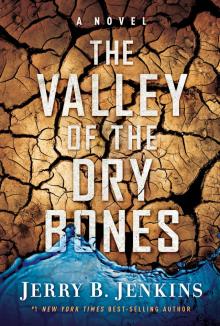 The Valley of Dry Bones
The Valley of Dry Bones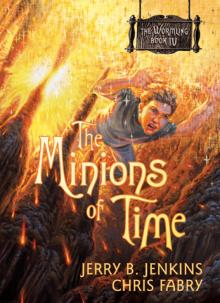 The Minions of Time
The Minions of Time Wild Rescue
Wild Rescue Though None Go with Me
Though None Go with Me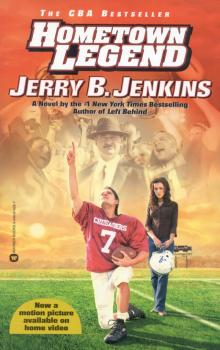 Hometown Legend
Hometown Legend The Breakthrough
The Breakthrough The Youngest Hero
The Youngest Hero Nicolae High
Nicolae High Through the Flames
Through the Flames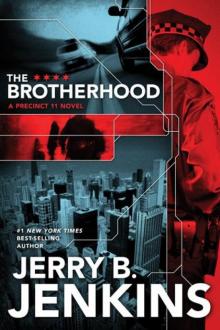 The Brotherhood
The Brotherhood Grave Shadows
Grave Shadows The Changeling
The Changeling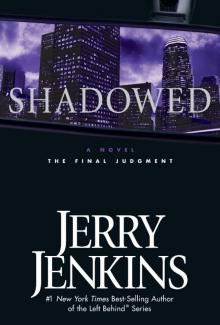 Shadowed
Shadowed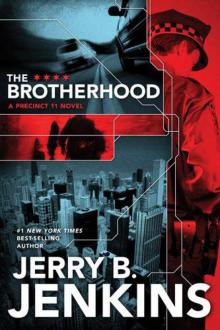 Precinct 11 - 01 - The Brotherhood
Precinct 11 - 01 - The Brotherhood Second Chance
Second Chance Silenced
Silenced The Vanishings
The Vanishings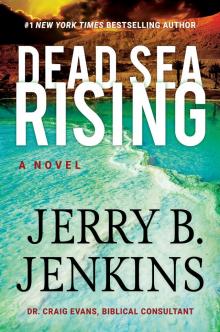 Dead Sea Rising
Dead Sea Rising Soon
Soon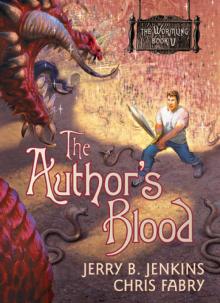 The Author's Blood
The Author's Blood The Sword of the Wormling
The Sword of the Wormling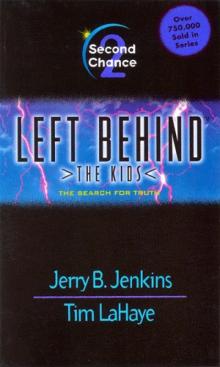 Left Behind - The Kids 02 - Second Chance
Left Behind - The Kids 02 - Second Chance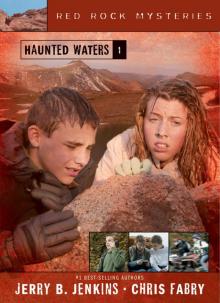 Haunted Waters
Haunted Waters The Underground
The Underground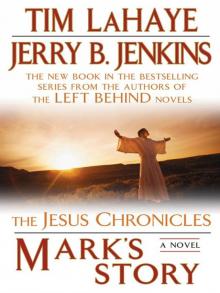 Mark's Story
Mark's Story Shaken
Shaken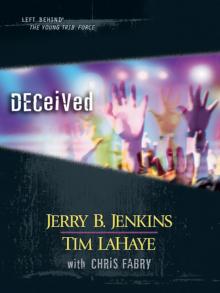 Deceived
Deceived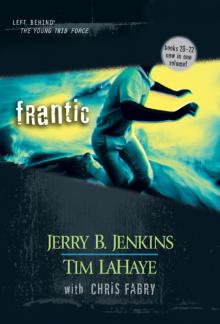 Frantic
Frantic Riven
Riven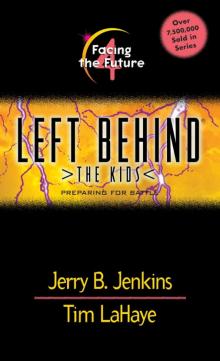 Facing the Future
Facing the Future Stung
Stung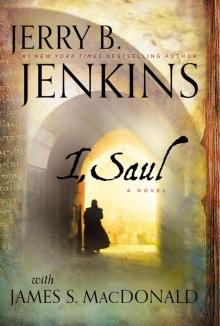 I, Saul
I, Saul Hunted
Hunted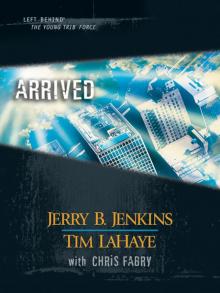 Arrived
Arrived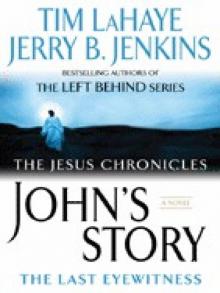 John's Story
John's Story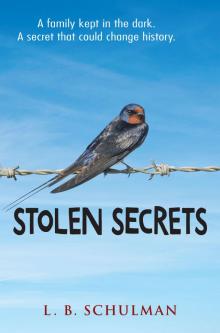 Stolen Secrets
Stolen Secrets